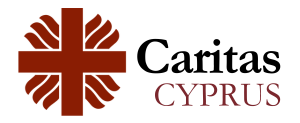While the legal and institutional capacities vary between the Republic of Cyprus and the northern part of the island administered by the Turkish Cypriot authorities, both communities struggle with implementation of international standards, victim protection and intra-island cooperation. According to a report recently published as part of the EU-funded United Action Against Human Trafficking project, political realities create additional obstacles, yet the human rights imperative demands harmonized, victim-centered and gender-sensitive responses. A shared strategy is essential to combat trafficking island-wide and to improve the conditions faced by victims and survivors. The report—“Towards a Unified Response: Mapping and Strengthening Anti-Trafficking Mechanisms in Cyprus”—is the result of an assessment conducted on both sides of Cyprus’ dividing Green Line by Christina Kaili of the Mediterranean Institute of Gender Studies (MIGS) and Mine Yucel of Prologue Consulting. It makes a critical contribution to the anti-trafficking ecosystem by assessing the mechanisms in place and shedding light on what improvements are needed. The report highlights critical gaps and good practices while aiming to provide actionable recommendations from a multi-communal perspective. It reflects the spirit of collaboration that unpins the UAAHT project implemented by Caritas Cyprus and the Refugee Rights Association.
